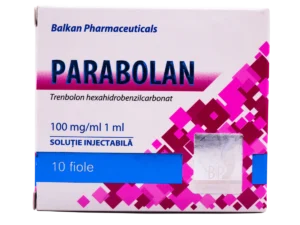Caffeine in Bodybuilding: Boosting Performance and Enhancing Results
Caffeine, a widely consumed stimulant, has gained significant attention in the world of bodybuilding. Known for its ability to increase alertnessand combat fatigue, caffeine has become a popular choice among athletes and fitness enthusiasts. This article explores the impact of caffeine on bodybuilding, shedding light on its potential benefits and drawbacks.
In recent years, bodybuilders have turned to caffeine as a performance-enhancing aid. Its ability to stimulate the central nervous system is believed to improve focus, concentration, and overall physical performance. By blocking adenosine receptors in the brain, caffeine reduces the perception of effort and fatigue, allowing individuals to push harder during workouts. This can lead to increased endurance, strength, and power output, ultimately contributing to more effective training sessions.
Moreover, caffeine has been found to have a thermogenic effect on the body, meaning it increases metabolic rate and promotes fat oxidation. This makes it an attractive supplement for bodybuilders aiming to reduce body fat while preserving lean muscle mass. Additionally, caffeine has been shown to enhance glycogen resynthesis, aiding in post-workout recovery and muscle replenishment.
Research has also suggested that caffeine may have a positive impact on muscle contraction. It has been found to increase calcium release in muscle cells, potentially leading to improved muscle contractions and force production. This can be particularly beneficial for bodybuilders striving to maximize muscle growth and strength gains.
While caffeine can undoubtedly provide numerous benefits for bodybuilders, it is essential to approach its consumption with caution. Excessive intake of caffeine can lead to negative side effects such as increased heart rate, jitteriness, insomnia, and gastrointestinal distress. Moreover, individuals who regularly consume caffeine may develop a tolerance, requiring higher doses
It is crucial for bodybuilders to consider their individual tolerance, sensitivity, and overall health when incorporating caffeine into their training regimen. Consulting with a healthcare professional or sports nutritionist can provide personalized guidance on appropriate caffeine intake and its potential interactions with other supplements or medications.
In conclusion, caffeine can be a valuable tool in the arsenal of bodybuilders, offering enhanced performance, improved fat metabolism, and potential muscle growth benefits. However, responsible and informed consumption is key to reaping its rewards while minimizing potential risks. By understanding the effects and limitations of caffeine, bodybuilders can harness its power to optimize their training and achieve their fitness goals.
The Impact of Caffeine in Bodybuilding
Enhanced Performance and Endurance
One of the primary reasons bodybuilders turn to caffeine is its potential to enhance performance and endurance. Caffeine acts as a stimulant, increasing alertness and reducing the perception of effort during workouts. By blocking adenosine receptors in the brain, caffeine helps to combat fatigue and allows individuals to push harder and train for longer durations. This can be especially beneficial during intense training sessions or competitions, where maintaining high energy levels and focus is crucial.
Increased Strength and Power Output
Caffeine’s ability to stimulate the central nervous system also translates into increased strength and power output. Research has shown that caffeine consumption before a workout can improve muscle contractions and force production. By increasing calcium release in muscle cells, caffeine enhances the efficiency of muscle contractions, leading to greater strength gains over time. This can be particularly advantageous for bodybuilders looking to maximize their training results and achieve new personal records.
Metabolic Boost and Fat Oxidation
Another significant benefit of caffeine in bodybuilding is its thermogenic effect on the body. Caffeine has been found to increase metabolic rate, leading to an elevated calorie burn throughout the day. This can aid in weight management and fat loss, as a higher metabolic rate means the body is more efficient at burning calories. Additionally, caffeine has been shown to promote fat oxidation, making it an attractive supplement for bodybuilders aiming to reduce body fat while preserving lean muscle mass.
Post-Workout Recovery and Muscle Replenishment
Caffeine has also demonstrated its potential to enhance post-workout recovery and muscle replenishment. Studies have indicated that caffeine can improve glycogen resynthesis, the process by which muscles replenish their energy stores after intense exercise. By facilitating glycogen replenishment, caffeine helps to accelerate recovery and prepares the body for subsequent training sessions. This can result in reduced muscle soreness and improved overall performance in the long run.
Conclusions
In conclusion, caffeine can be a valuable tool for bodybuilders seeking to optimize their training and achieve their fitness goals. Its ability to enhance performance, increase endurance, and improve strength and power output make it an attractive supplement choice. Additionally, caffeine’s thermogenic effect and promotion of fat oxidation can aid in body fat reduction while preserving lean muscle mass. However, it is crucial to approach caffeine consumption responsibly and consider individual tolerance and sensitivity. Consulting with a healthcare professional or sports nutritionist is recommended to determine appropriate caffeine intake and potential interactions with other supplements or medications. By harnessing the power of caffeine effectively, bodybuilders can elevate their training and unlock their full potential.






